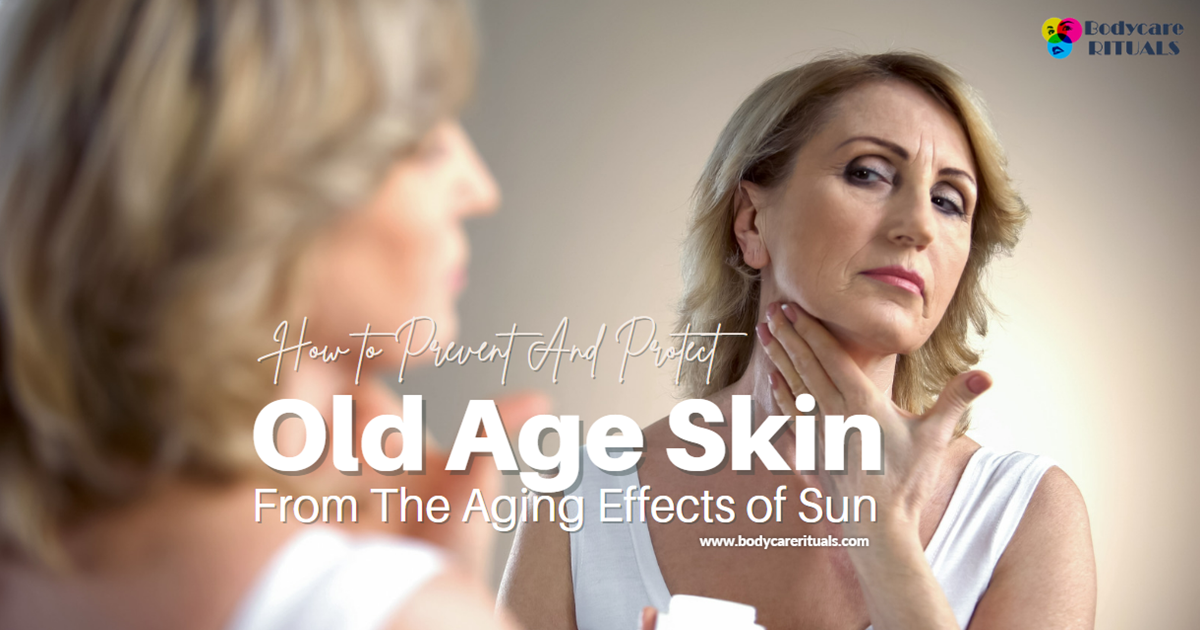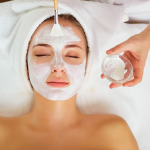As we age, our skin becomes more vulnerable to the damaging effects of the sun. We tend to feel the effects and protect old age skin is added to our daily routine. Sunlight can make us feel rejuvenated, but it also poses serious risks to our skin health. The sun’s harmful UV rays can accelerate aging, leading to wrinkles, age spots, and even skin cancer. But fear not! With the right knowledge and proactive measures, you can shield your skin from these aging effects and enjoy the sun safely.
In this comprehensive guide, we’ll explore practical tips and strategies to prevent and protect old age skin from the aging effects of the sun, allowing you to bask in the sunshine while keeping your skin radiant and youthful.
Understanding the Aging Effects of the Sun on Old Age Skin:
- UV Radiation and Skin Aging: UV radiation penetrates the skin’s surface, damaging collagen and elastin fibers, which are essential for maintaining skin elasticity and firmness. Over time, this damage leads to sagging skin and the formation of fine lines and wrinkles. It’s crucial to understand that UV radiation can penetrate clouds and windows, so even on cloudy days or indoors, your skin is still at risk.
- Hyperpigmentation and Age Spots: Prolonged sun exposure can trigger an overproduction of melanin, resulting in dark patches and age spots on the skin, particularly on areas exposed to the sun, such as the face, hands, and décolletage. These dark spots, also known as solar lentigines, are often a visible sign of sun damage and can make the skin appear older than it is.
- Increased Risk of Skin Cancer: UV radiation is a known carcinogen that can cause mutations in skin cells, increasing the risk of developing skin cancer, including basal cell carcinoma, squamous cell carcinoma, and melanoma. According to the Skin Cancer Foundation, one in five Americans will develop skin cancer by the age of 70, making it crucial to protect your skin from sun damage.
Additional Tips for Sun Protection: 4. Check the UV Index: Monitor the UV index in your area before heading outdoors. The UV index provides information on the strength of UV radiation and helps you gauge the level of sun protection needed. Aim to schedule outdoor activities during times when the UV index is lower, typically early morning or late afternoon.
- Protect Your Lips: Don’t forget to apply lip balm with SPF protection to shield your lips from sun damage. The skin on the lips is delicate and prone to sunburn, so using a lip balm with SPF can prevent dryness, cracking, and premature aging of the lips.
- Reevaluate Medications: Certain medications, such as antibiotics, diuretics, and acne treatments, can increase sensitivity to sunlight and heighten the risk of sunburn. If you’re taking medication, consult your healthcare provider to determine if any precautions are necessary when spending time outdoors.
- Practice Sun-Safe Habits Year-Round: Sun protection isn’t just for sunny days or summer months. UV radiation is present year-round, even on cloudy or overcast days. Make sun protection a daily habit by incorporating sunscreen into your morning routine, regardless of the weather forecast.
- Regular Skin Checks: Perform regular self-examinations of your skin to monitor for any changes, such as new moles, lesions, or unusual growths. Early detection of skin cancer increases the chances of successful treatment, so familiarize yourself with your skin’s appearance and seek medical attention if you notice any concerning changes.
The Importance of Vitamin D: While sun protection is essential for maintaining skin health, it’s also important to ensure adequate vitamin D levels. Vitamin D is crucial for bone health, immune function, and overall well-being. While sunlight is a primary source of vitamin D, prolonged sun exposure carries risks of skin damage. Consider alternative sources of vitamin D, such as fortified foods, supplements, and brief periods of sun exposure during non-peak hours, to meet your body’s vitamin D requirements while minimizing sun damage.
Environmental Factors and Sun Protection: Environmental factors, such as altitude, latitude, and reflective surfaces (e.g., snow, water, sand), can intensify UV radiation and increase the risk of sunburn and skin damage. When participating in outdoor activities at high altitudes or near water or snow, take extra precautions by applying sunscreen more frequently, wearing protective clothing, and seeking shade whenever possible.
Addressing Common Sun Protection Myths: Dispelling common misconceptions about sun protection can help individuals make informed decisions about their skin health. Address myths such as “You can’t get sunburned on cloudy days,” “Dark skin doesn’t need sunscreen,” and “A base tan protects against sunburn” by providing accurate information and encouraging sun-safe practices for everyone, regardless of skin type or ethnicity.
Protect old age skin from the aging effects of the sun is important
By implementing these simple yet effective strategies, you can safeguard your skin against UV damage and enjoy a radiant complexion for years to come. Remember, prevention is key when it comes to sun protection, so make sun safety a priority in your daily skincare routine. With a little diligence and proactive care, you can keep your skin looking youthful and glowing, no matter your age.
In addition to protecting your skin from the sun’s harmful rays, it’s essential to prioritize overall skin health through proper hydration, nutrition, and regular skincare routines. Incorporating moisturizers, antioxidants, and gentle cleansers into your daily regimen can further support skin health and combat the signs of aging. Remember to listen to your skin’s needs, pay attention to any changes or concerns, and seek professional guidance if necessary. With a holistic approach to skincare and sun protection, you can confidently embrace the beauty of aging while maintaining a healthy and radiant complexion.



